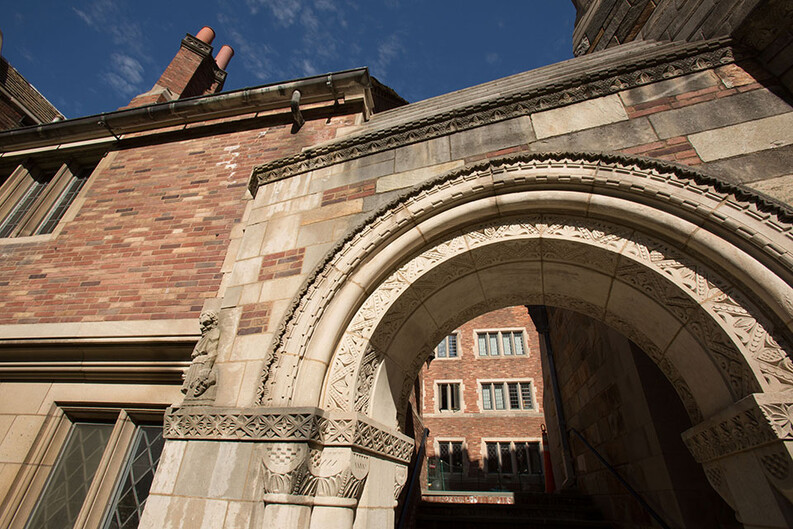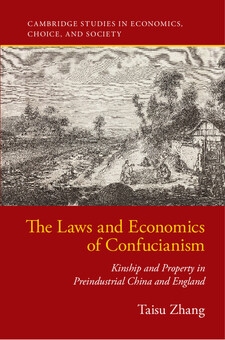Associate Professor Taisu Zhang Publishes Book on Confucianism

Associate Professor of Law Taisu Zhang ’08 brings together cultural history, legal history, and institutional economics in his new book, The Laws and Economics of Confucianism: Kinship and Property in Preindustrial China and England (Cambridge University Press, 2017), exploring why Chinese and English pre-industrial economic development went down different paths.

While numerous scholars have sought to explain modern China’s economic decline relative to their western peers, Zhang highlights the significant omission of cultural analysis in the current scholarship. Although cultural analysis is often avoided for sensible reasons, Zhang argues, the impulse also leaves unexamined many essential questions. Zhang reintroduces cultural studies to comparative Sino-English economic history to argue that social and cultural differences between early modern pre-industrial China and England had major consequences for legal institutions and macro-level economic outcomes.
In early modern pre-industrial China, the dominance of kinship networks allowed many relatively poor individuals to possess status and political authority disproportionate to their wealth. Under these norms, advanced age and generational seniority were much stronger determinants of sociopolitical status than wealth.
In England, by comparison, the prerequisite to high status and authority was landed wealth. This stricter requirement essentially excluded low-income individuals from positions of prestige and leadership.
As a result of these differences, Chinese customary laws governing the selling and collateralizing of land protected the economic interests of lower-income households in rural China far more rigorously than comparable English institutions.
These institutional differences had significant economic consequences over time. By the early eighteenth century, a majority of English land was concentrated under capitalist management, with smallholders in steady decline. In comparison, even by the mid–twentieth century, Chinese agriculture remained predominantly household-based, and less concentrated than in England. Because Chinese property institutions were much more “poor friendly,” poor landowners had less incentive to sell land. Property institutions, then, played an essential role in linking cultural differences to macro-level economic outcomes.
In its dissertation form, The Laws and Economics of Confucianism was the recipient of Yale University’s Arthur and Mary Wright Dissertation Prize and the American Society for Legal History’s Kathryn T. Preyer Award.
Prior to joining the Yale faculty, Zhang was an Associate Professor at the Duke University School of Law, and has taught at Brown University, Peking University Law School, the Tsinghua University School of Law, and the University of Hong Kong. He holds three degrees from Yale: a B.A. in History and Mathematics, a J.D., and a Ph.D. in History.


